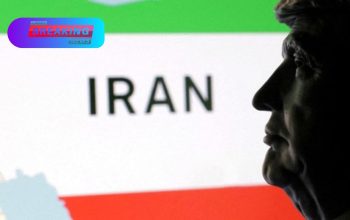Ukraine’s fight against corruption has reached a new milestone as President Volodymyr Zelenskiy intensifies efforts to restore the independence of two crucial anti-corruption bodies: the National Anti-Corruption Bureau of Ukraine (NABU) and the Specialized Anti-Corruption Prosecutor’s Office (SAPO). This move comes as part of Ukraine’s broader goal to align with Western standards and secure continued support from international allies.
Why NABU and SAPO Independence Matters
NABU and SAPO play vital roles in investigating and prosecuting high-level corruption in Ukraine. These institutions were originally designed to operate independently from political influence, ensuring transparency and fairness. However, recent developments raised concerns about political interference that risk undermining their effectiveness.
Zelenskiy emphasized that a successful anti-corruption strategy requires strong and autonomous institutions. He stated, “Our victory on and off the battlefield depends on the rule of law. NABU and SAPO must be empowered to act freely without pressure or control.”
International Pressure and Support
The European Union, United States, and other Western partners have consistently highlighted the independence of NABU and SAPO as critical for Ukraine’s reform progress. The European Commission has tied further EU accession talks to measurable improvements in anti-corruption frameworks.
An EU spokesperson noted, “Independent anti-corruption bodies are fundamental for the credibility of Ukraine’s judicial system. We urge all stakeholders to support legislative reforms that guarantee NABU and SAPO’s autonomy.”
Similarly, the U.S. ambassador to Ukraine recently reiterated that shielding these institutions from political interference remains a top priority for American assistance.
Legislative Challenges and Proposed Reforms
Despite Zelenskiy’s public support, legal obstacles complicate the restoration of independence. Laws currently in place allow for significant influence over appointments within NABU and SAPO, weakening their operational independence.
In July, parliament began reviewing a bill designed to improve appointment procedures and strengthen NABU’s autonomy. While the draft received initial approval, critics argue the changes do not fully prevent political pressure.
Zelenskiy called on lawmakers to adopt more comprehensive reforms, warning that partial fixes will fail to meet international expectations.
Public Opinion and Civil Society Engagement
Anti-corruption remains a top concern for Ukrainian citizens. A recent poll showed that 68% of the population ranks it as a key national issue, second only to security.
Public demonstrations have underscored widespread demand for transparent governance and institutional independence. Protesters nationwide have carried banners reading “No Justice Without Independence” and urged government accountability.
Civil society groups have stepped up monitoring efforts, pushing for more stringent legislative safeguards and transparent appointments.
The Road Ahead: Implications for Ukraine’s Future
Restoring NABU and SAPO’s full independence is more than a legal formality—it represents a pivotal step in Ukraine’s democratic development. Zelenskiy views this reform as essential for Ukraine’s integration with the EU and NATO.
To coordinate these efforts, he has appointed a presidential task force that will oversee the implementation of reforms and ensure compliance with international standards. Success in this area could open doors to further judicial reforms, strengthening Ukraine’s credibility on the global stage.
Failure to deliver on these promises, however, risks delaying EU accession and jeopardizing critical financial aid. For Zelenskiy, the stakes remain high as the country balances wartime resilience with the urgent need for clean governance.
Conclusion
Ukraine stands at a crossroads, and the independence of NABU and SAPO will signal how committed the nation is to lasting reform. With strong leadership from President Zelenskiy, increasing public support, and persistent international pressure, the future of these anti-corruption bodies could define the next chapter in Ukraine’s democratic journey.



